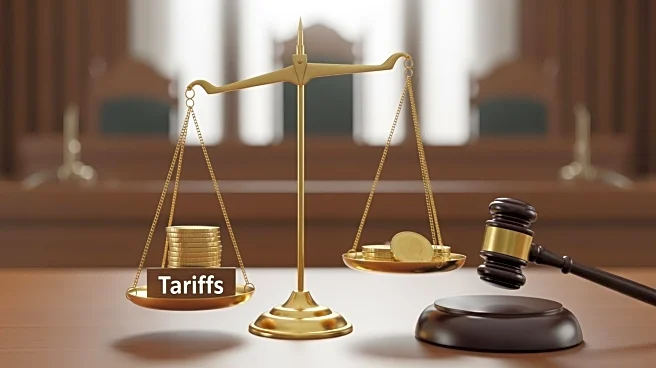What's Happening?
Thirty-one former federal judges have filed an amicus brief urging the U.S. Supreme Court to reject President Trump's use of emergency powers to impose extensive tariffs. The judges argue that these tariffs exceed
presidential authority and that the courts should have the power to review such determinations. The brief highlights concerns about the balance of powers and the potential for executive overreach. This case, involving Trump's signature economic policy, is set to be argued in the Supreme Court, with Trump indicating he may attend the proceedings.
Why It's Important?
The involvement of former judges in this case highlights significant concerns about executive power and its limits. The outcome could have far-reaching implications for U.S. trade policy and the balance of power between the executive and judicial branches. If the Supreme Court sides with the judges, it could curtail the president's ability to unilaterally impose tariffs, affecting international trade relations and economic strategies. This case also reflects ongoing tensions between the Trump administration and the judiciary, with potential impacts on future policy-making and legal interpretations.
What's Next?
The Supreme Court is scheduled to hear arguments on November 5, with President Trump potentially attending. The decision could set a precedent for how emergency powers are interpreted and applied in economic contexts. Stakeholders, including businesses and international trade partners, are closely monitoring the case, as its outcome could influence future trade policies and economic strategies. The ruling may also prompt legislative action to clarify the scope of presidential powers in trade matters.











